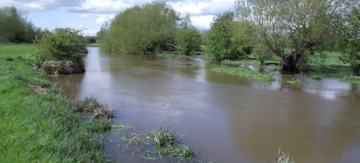Case study:River Thame Catchment Conservation Project
This case study is pending approval by a RiverWiki administrator.
Project overview
| Status | In progress |
|---|---|
| Project web site | |
| Themes | Economic aspects, Habitat and biodiversity, Social benefits, Water quality |
| Country | England |
| Main contact forename | Pascale |
| Main contact surname | Nicolet |
| Main contact user ID | |
| Contact organisation | The Freshwater Water Habitats Trust |
| Contact organisation web site | |
| Partner organisations | |
| Parent multi-site project | |
| This is a parent project encompassing the following projects |
No |
Project summary
The project has two main objectives (i) to install a comprehensive range of diffuse pollution control and biodiversity enhancement measures in a pilot area covering c.40km2 on the lower Thame which can subsequently be rolled out across the whole catchment. (ii) to complete the preparation of a strategic overview plan for the River Thame catchment, jointly developed by all catchment partners, to maximise the benefits of stakeholder involvement in achieving the aims of the Water Framework Directive. The overview plan will apply the techniques and lessons learned in the pilot area, and elsewhere, to outline a rolling programme of practical works throughout the Thame catchment.
Monitoring surveys and results
Lessons learnt
Image gallery
|
Catchment and subcatchmentSelect a catchment/subcatchment
Catchment
Subcatchment
Site
Project background
Cost for project phases
Reasons for river restoration
Measures
MonitoringHydromorphological quality elements
Biological quality elements
Physico-chemical quality elements
Any other monitoring, e.g. social, economic
Monitoring documents
Additional documents and videos
Additional links and references
Supplementary InformationEdit Supplementary Information
| ||||||||||||||||||||||||||||||||||||||||||||||||||||||||||||||||||||||||||||||||||||||||||||||||||||||||||||||||||||||||||||||||||||||||||||||||||||||||||||||||||||||||||||||||||||||||||||||||||||||||

